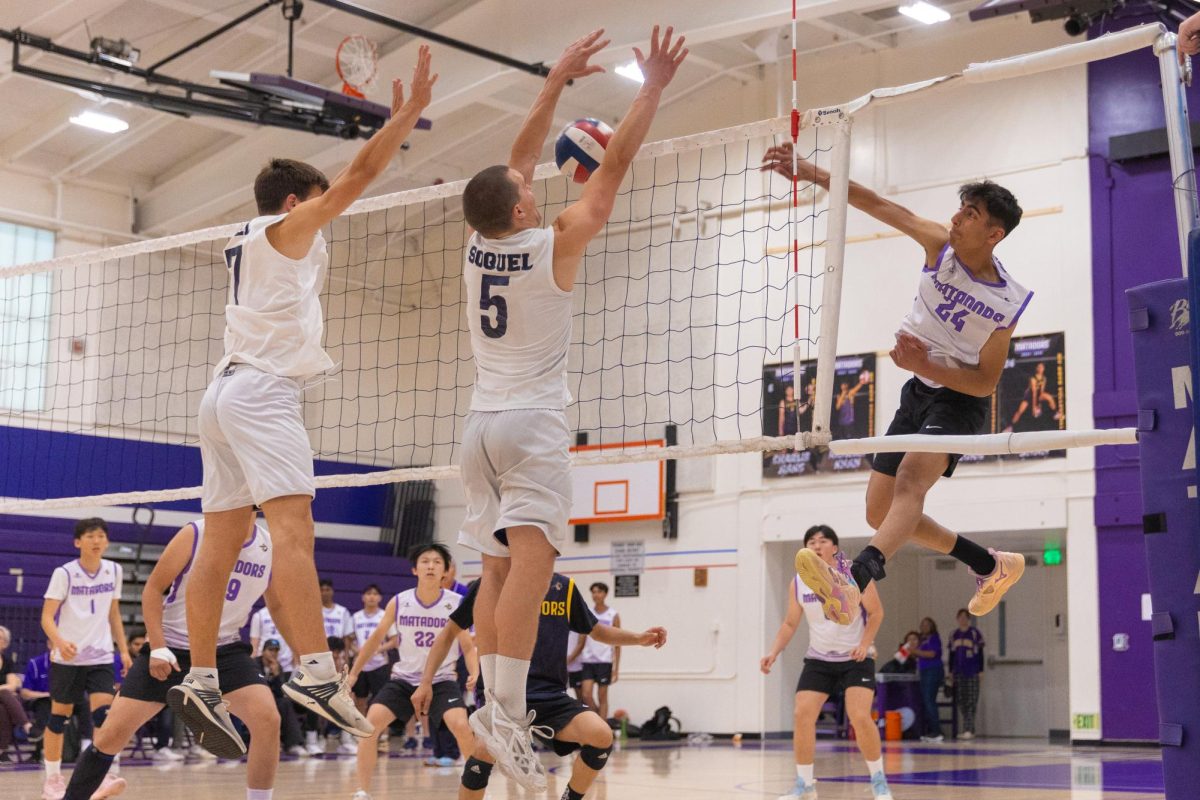MV Dance Team Coach Joy Lee has a policy in place for all of her dancers: if you can’t make it to practice, you have to write a paragraph detailing how your absence impacts the team. With the exception of reasons like illness or emergencies, Lee implemented this policy with the intention to emphasize the importance of being present for the sake of the team.
“I think it’s really easy for kids to message me an hour before practice starts saying, ‘Hey, I can’t make it’ and not really understand the repercussions of that because they’re not at practice to see their other teammates picking up that slack,” Lee said. “It was important to me to have the kids understand that when you miss a practice, it’s affecting not just you, it’s affecting 20 other people.”
However, for student-athletes like freshman and Varsity Girls Basketball point guard Ananya Kotla, missing practice is not always so simple. Throughout the five to six practices she missed while out sick in episodes of bacterial infections, strep throat and influenza type A, Kotla was eager to return to practice. Although her coach was very understanding of her situation, to Kotla, being on a Varsity team means sports is a top priority and thus absences are rare within the team of 14. However, she explains it was difficult trying to get back into the rhythm of basketball.
“I was still feeling sick, but I still wanted to practice because I felt like I was just sitting around and doing nothing,” Kotla said. “I was back-to-back sick, so I skipped almost two weeks. And eventually I was like, you know what, I’m just gonna come and practice and do what I have to do.”
Senior and Varsity Field Hockey left forward Sohni Tagirisa found herself in a similar predicament during field hockey season, as she sat out of practices for almost four weeks due to respiratory illnesses. Despite this, Tagirisa says she did everything she could to support her team from the sidelines, showing up to games and practices whenever possible. Tagirisa shares that both her coach and team were supportive of her situation and believes that it was ultimately good communication between them that allowed them to come to a mutual understanding.
“My coach’s reaction was like ‘Oh, I’m so sorry this is happening. Is there anything that your coaches and teammates can do for you?’” Tagirisa said. “It was genuinely gracious. If you talk to them, our coaches could be accommodating. If you’re willing to communicate and be vulnerable with our coaches, I think they’re also willing to be equally patient.”
Lee also stresses the importance of communication, specifically communicating well in advance for absences whenever possible. For dance, it is important for every dancer to be on the same page while cleaning a routine and perfecting small details. When a dancer misses a practice, they end up lacking the important adjustments and refinements that can make or break the routine.
The dance team also often competes in smaller units that specialize in each category of dance, which Lee mentions poses difficulties for their alternates. This mainly affects dancers who aren’t specialized in the specific type of dance they alternate for, especially in smaller units.
“Currently, we only have one alternate in place, and our team is pretty big, so if somebody were having to miss a performance, we could generally fill in that hole easily,” Lee said. “But within our small unit, there’s only about seven of them. So if one person is out, it affects the whole team.”
Tagirisa agrees that alternating or even a lack of subbing can complicate team dynamics, pointing out that in the past the Varsity Field Hockey team had only one or two subs — at one point, they had no subs at all.
“Everyone was stretched to their limits,” Tagirisa said. “I feel like our team could’ve had better performances with everyone here. On the field, it was a matter of being able to continue playing. We were doing our best, but sometimes our best is different when you’re playing the whole game and you have no breaks. Having absent players and no subs does have a negative dynamic on our team because everyone is exhausted, and there’s really nothing that we can do because there are no subs.”
Tagirisa further outlines the importance of having substitutes not just for filling in gaps, but for the flexibility of the team. Having substitutes means that players aren’t always playing or interacting with the same team members, and can be exposed to more people on the team that they otherwise wouldn’t be. Although the field hockey team has 12 players, Tagirisa believes this allows players to learn to branch out and foster teamwork skills with every athlete on the team.
Kotla expands on Tagirisa’s point, noting that whether players are absent or not, sports are time-consuming commitments. As a result, Kotla stresses the importance of managing one’s time, explaining how she often stays up late to study after practice. Lee says she understands the difficulty of juggling other priorities especially at MVHS, where many students balance an academically rigorous course load alongside multiple extracurricular activities. This is a unique complication for student athletes at MVHS, with schoolwork and tests being the second most common reason for absence after sickness. In lieu of this, although Lee continues to stress the importance of being there for the team, she says that even for performances she is willing to be flexible.
“It’s a little bit tougher to get around performances, they’re on our schedule, they’ve been there for a while,” Lee said. “But if there’s something big happening, like for example a lot of the kids on the team are seniors, so if they have a college audition, interview, anything I’m totally willing to open up that space for them.”
Both Tagirisa and Kotla stress the importance of coach support and believe that coaches have the players’ best interests at heart. Though coaches give advice and help to the best of their ability, Tagirisa believes that they can only do so much. When it comes to absences, student athletes make the final decision on how they prioritize their commitment to sports.












